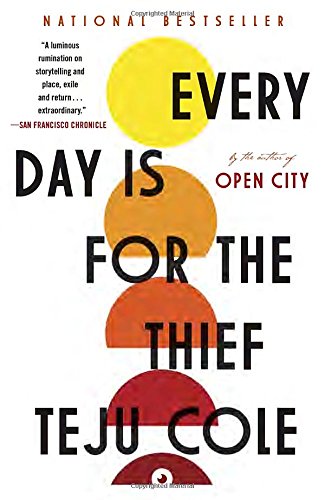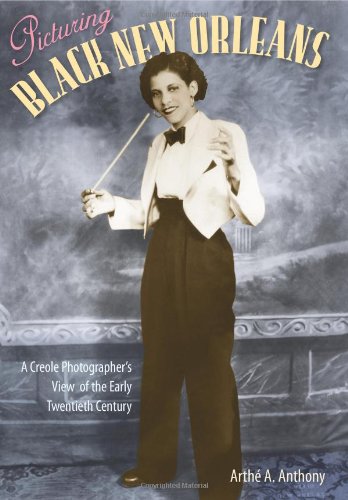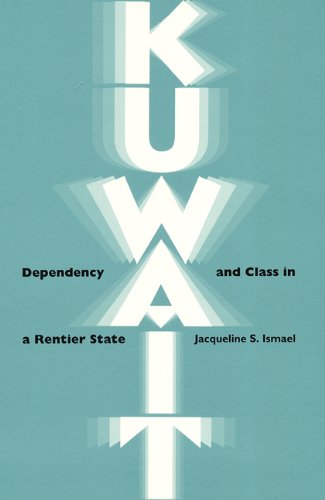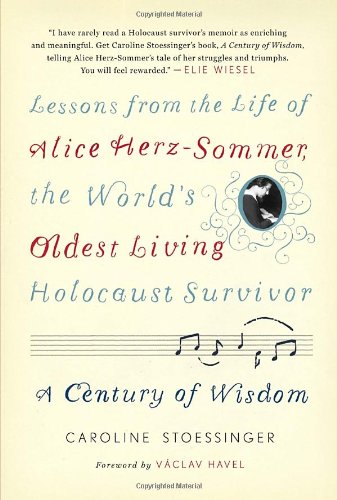Ebook Download Every Day Is for the Thief: Fiction, by Teju Cole
Be the first to obtain this e-book now and get all reasons you have to read this Every Day Is For The Thief: Fiction, By Teju Cole The book Every Day Is For The Thief: Fiction, By Teju Cole is not only for your tasks or necessity in your life. Publications will always be a great friend in every time you read. Now, let the others learn about this page. You can take the perks and discuss it also for your buddies and individuals around you. By through this, you could really obtain the significance of this book Every Day Is For The Thief: Fiction, By Teju Cole profitably. What do you consider our suggestion right here?

Every Day Is for the Thief: Fiction, by Teju Cole

Ebook Download Every Day Is for the Thief: Fiction, by Teju Cole
New updated! The Every Day Is For The Thief: Fiction, By Teju Cole from the most effective writer as well as publisher is currently available below. This is guide Every Day Is For The Thief: Fiction, By Teju Cole that will make your day reviewing comes to be finished. When you are trying to find the published book Every Day Is For The Thief: Fiction, By Teju Cole of this title in guide store, you could not find it. The problems can be the restricted editions Every Day Is For The Thief: Fiction, By Teju Cole that are given up guide establishment.
Reading book Every Day Is For The Thief: Fiction, By Teju Cole, nowadays, will certainly not compel you to always get in the shop off-line. There is an excellent location to get the book Every Day Is For The Thief: Fiction, By Teju Cole by on-line. This website is the most effective site with great deals numbers of book collections. As this Every Day Is For The Thief: Fiction, By Teju Cole will certainly remain in this publication, all books that you need will certainly correct here, too. Merely search for the name or title of guide Every Day Is For The Thief: Fiction, By Teju Cole You can discover what exactly you are searching for.
So, also you need commitment from the business, you may not be confused any more because books Every Day Is For The Thief: Fiction, By Teju Cole will consistently help you. If this Every Day Is For The Thief: Fiction, By Teju Cole is your finest companion today to cover your work or work, you can when feasible get this book. How? As we have actually told formerly, merely see the web link that we provide below. The final thought is not only the book Every Day Is For The Thief: Fiction, By Teju Cole that you look for; it is just how you will certainly obtain numerous publications to sustain your skill as well as capability to have piece de resistance.
We will certainly show you the very best and best means to obtain book Every Day Is For The Thief: Fiction, By Teju Cole in this world. Bunches of collections that will certainly assist your task will certainly be here. It will make you really feel so best to be part of this website. Becoming the participant to constantly see just what up-to-date from this publication Every Day Is For The Thief: Fiction, By Teju Cole website will certainly make you feel best to search for the books. So, recently, and here, get this Every Day Is For The Thief: Fiction, By Teju Cole to download and also wait for your valuable deserving.

NAMED ONE OF THE TEN BEST BOOKS OF THE YEAR BY DWIGHT GARNER, THE NEW YORK TIMES • NAMED ONE OF THE BEST BOOKS OF THE YEAR BY San Francisco Chronicle | NPR | The Root | The Telegraph | The Globe and Mail
NATIONAL BESTSELLER • FINALIST, PHILLIS WHEATLEY BOOK AWARD • TEJU COLE WAS NAMED ONE OF THE MOST INFLUENTIAL AFRICANS OF THE YEAR BY NEW AFRICAN MAGAZINE
For readers of Chimamanda Ngozi Adichie and Michael Ondaatje, Every Day Is for the Thief is a wholly original work of fiction by Teju Cole, whose critically acclaimed debut, Open City, was the winner of the PEN/Hemingway Award and a finalist for the National Book Critics Circle Award, and was named one of the best books of the year by more than twenty publications.
Fifteen years is a long time to be away from home. It feels longer still because I left under a cloud.
A young Nigerian living in New York City goes home to Lagos for a short visit, finding a city both familiar and strange. In a city dense with story, the unnamed narrator moves through a mosaic of life, hoping to find inspiration for his own. He witnesses the “yahoo yahoo” diligently perpetrating email frauds from an Internet café, longs after a mysterious woman reading on a public bus who disembarks and disappears into a bookless crowd, and recalls the tragic fate of an eleven-year-old boy accused of stealing at a local market.
Along the way, the man reconnects with old friends, a former girlfriend, and extended family, taps into the energies of Lagos life—creative, malevolent, ambiguous—and slowly begins to reconcile the profound changes that have taken place in his country and the truth about himself.
In spare, precise prose that sees humanity everywhere, interwoven with original photos by the author, Every Day Is for the Thief—originally published in Nigeria in 2007—is a wholly original work of fiction. This revised and updated edition is the first version of this unique book to be made available outside Africa. You’ve never read a book like Every Day Is for the Thief because no one writes like Teju Cole.
Praise for Every Day Is for the Thief
“A luminous rumination on storytelling and place, exile and return . . . extraordinary.”—San Francisco Chronicle
“Cole is following in a long tradition of writerly walkers who, in the tradition of Baudelaire, make their way through urban spaces on foot and take their time doing so. Like Alfred Kazin, Joseph Mitchell, J. M. Coetzee, and W. G. Sebald (with whom he is often compared), Cole adds to the literature in his own zeitgeisty fashion.”—The Boston Globe
“Crisp, affecting . . . Cole constructs a narrative of fragments, a series of episodes that he allows to resonate.”—The New York Times Book Review
“Hugely rewarding . . . both a celebration of one of the world’s most vibrant cities and a lament over what can be one of the most frustrating and difficult places to live. It is also a story of family breakup and an uneasy homecoming—the narrator has been away for fifteen years and must relearn how to navigate a place that was once home.”—NPR
“[Every Day Is for the Thief has] a restraint that allows [Cole] to slip in these exquisitely rendered observations on life, love, art that leave you feeling richer and more attuned to your own reality once you’ve finished reading.”—Dinaw Mengestu, The Atlantic
From the Hardcover edition.
- Sales Rank: #43268 in Books
- Brand: Cole, Teju
- Published on: 2015-03-03
- Released on: 2015-03-03
- Original language: English
- Number of items: 1
- Dimensions: 7.98" h x .48" w x 5.19" l, .81 pounds
- Binding: Paperback
- 192 pages
From Booklist
After living in America for 15 years, a Nigerian writer returns to his homeland. Reunited with a beloved aunt, with whom he stays, he reconnects with a boyhood friend, now a struggling doctor, and visits the woman who was his first love, now married with a daughter, as he contemplates staying in Lagos. But he is struck by the omnipresent corruption, as officials at all levels, including police and soldiers, supplement often meager wages with bribes. He sees thieving “area boys” all around, Internet-scamming “yahoo yahoo” in cyber cafés, a jazz shop practicing piracy, and a national museum gone to ruin, its artifacts ill-maintained and its historical presentations inaccurate. Yet in addition to scoring high in corruption, Nigeria’s claim to fame is that it is the most religious country in the world and its people the happiest. This novella, a revised version of the first book written by Nigerian Cole, author of the acclaimed Open City (2011), is a scathing but loving look at his native land in measured, polished prose. --Michele Leber
Review
“A luminous rumination on storytelling and place, exile and return . . . extraordinary.”—San Francisco Chronicle
“[Teju] Cole is following in a long tradition of writerly walkers who, in the tradition of Baudelaire, make their way through urban spaces on foot and take their time doing so. Like Alfred Kazin, Joseph Mitchell, J. M. Coetzee, and W. G. Sebald (with whom he is often compared), Cole adds to the literature in his own zeitgeisty fashion.”—The Boston Globe
“Crisp, affecting . . . Cole constructs a narrative of fragments, a series of episodes that he allows to resonate.”—The New York Times Book Review
“Hugely rewarding . . . [Every Day Is for the Thief] is both a celebration of one of the world’s most vibrant cities and a lament over what can be one of the most frustrating and difficult places to live. It is also a story of family breakup and an uneasy homecoming—the narrator has been away for fifteen years and must relearn how to navigate a place that was once home.”—NPR
“[Every Day Is for the Thief has] a restraint that allows [Teju Cole] to slip in these exquisitely rendered observations on life, love, art that leave you feeling richer and more attuned to your own reality once you’ve finished reading.”—Dinaw Mengestu, The Atlantic
“Shimmering . . . transcendent.”—The Seattle Times
“Wonderful . . . a book that never fails to find a thoughtful and essential thing to say.”—Los Angeles Times
“Fearless, nimble, and surprising.”—The Daily Beast
“To read Cole is to be swept away by the language of a master wordsmith. In Every Day Is for the Thief, the PEN/Hemingway Award winner turns his considerable talents to the character of the expatriate, a young Nigerian medical student living in New York City who returns home to Lagos for a short visit. In his adventures wandering the town, reflections on the Nigerian homeland and the self-as-outsider arise. This work was originally published in Nigeria in 2007, four years before the release of Cole’s novel Open City, but was not available in the U.S. until now. We are thankful that non-Nigerian readers can now enjoy Cole’s first novel.”—The Root
“A Teju Cole novel is a reading experience matched by few contemporary writers.”—Flavorwire
“Every Day Is for the Thief, by turns funny, mournful, and acerbic, offers a portrait of Nigeria in which anger, perhaps the most natural response to the often lamentable state of affairs there, is somehow muted and deflected by the author’s deep engagement with the country: a profoundly disenchanted love. Teju Cole is among the most gifted writers of his generation.”—Salman Rushdie
“[A] tightly focused but still marvelously capacious little novel . . . built with cool originality . . . The house of literature [Cole] is busy creating is an in-between space with fluid dimensions, resisting entrenchment.”—The Christian Science Monitor
“Direct and bracing, a short, sharp counterpunch to those who seek to romanticise Africa.”—The Telegraph (UK)
“Every Day Is for the Thief holds something for people with all levels of familiarity with Nigeria. It is an introduction and a provocation, a beautifully simple portrait and a nuanced examination. It invites you to steal a glimpse of Lagos.”—Pittsburgh Post-Gazette
“A worthy precursor and, in a way, a companion piece to Cole’s highly acclaimed Open City . . . Cole’s narrator is compelling—someone with whom you want to spend time ambling, looking and chatting. I was happy to be along for the journey.”—The Plain Dealer
“[Every Day Is for the Thief] expands and reinforces the accomplishments of Open City, confirming along the way that Teju is one of the foremost—for the lack of a better term—bicultural writers.”—Aleksandar Hemon, Bomb
“Every Day Is for the Thief is a vivid, episodic evocation of the truism that you can’t go home again; but that doesn’t mean you’re not free to try. A return to his native Nigeria plunges Cole’s charming narrator into a tempest of chaos, contradiction, and kinship in a place both endearingly familiar and unnervingly strange. The result is a tale that engages and disturbs.”—Billy Collins
“Rich imagery and sharp prose . . . widely praised as one of the best fictional depictions of Africa in recent memory.”—The New Yorker
“Every Day Is for the Thief is unapologetically a novel of ideas: a diagnosis of the systemic corruption in Cole’s native Lagos and of corruption’s psychological effects. But, remarkably, the book avoids any of the chunkiness that usually accompanies such work. Emotional and intellectual life are woven too tightly together. The ideas make the character and vice versa.”—The New Republic
“Every Day Is for the Thief is a testament to [Nigeria’s] power to inspire.”—Vanity Fair
“Excellently crafted . . . Optimism regarding the future of [Nigeria] pulsates steadily . . . through [Every Day Is for the Thief].”—The Huffington Post
“Every Day Is for the Thief is an amazing hybrid of a book. Imaginative, original, experimental, and sensual, this book revisits the way narrative is constructed with tenderness and style.”—Chris Abani, author of Graceland
“[Cole] revels in ambiguity, taking inspiration from authors who have toyed with what a novel can be, like W. G. Sebald, J. M. Coetzee and V. S. Naipaul. . . . There is a touch of Alfred Kazin and Joseph Mitchell—two of the most observant walkers in [New York City’s] history—in his books’ open-eyed flaneurs.”—New York Observer
“It’s a novella, it’s a travel journal, it’s a laundry list of methods of thievery, it’s an examination of Nigerian societal norms, it’s the lamentations of an outsider, it’s a photo album. That Cole pulls this off at all is commendable. That it was his first book is a marvel.”—The A.V. Club
“Omnivorous and mesmerizing . . . it is a pleasure to be in [the narrator’s] company.”—Minneapolis Star Tribune
“Beautifully written . . . The Lagos presented here teems with stories.”—Milwaukee Journal Sentinel
“Versatile, courageous, and hopeful . . . Cole writes without shock absorbers, and the ride is as terrifying as it is gorgeously set.”—Interview
“With journalism-like objectivity, Cole by way of his narrator details a Nigeria that is violent and corrupt, but also multi-cultural and alive. . . . It’s his willingness to explore so many uncomfortable paradoxes that sears this narrative into our brains.”—Publishers Weekly
From the Hardcover edition.
About the Author
Teju Cole was born in the United States in 1975 and raised in Nigeria. He is the author of Every Day Is for the Thief and Open City, which won the PEN/Hemingway Award, the Internationaler Literaturpreis, the Rosenthal Family Foundation Award for Fiction from the American Academy of Arts and Letters, and the New York City Book Award, and was nominated for the National Book Critics Circle Award. His photography has been exhibited in India and the United States. He is Distinguished Writer in Residence at Bard College.
Most helpful customer reviews
24 of 27 people found the following review helpful.
A Question of Style
By Gregory Baird
Teju Cole has a novelistic style unlike many other fiction writers out there today. I guess whether or not you enjoy his work comes down to how you respond to that style. Because here's the thing: nothing happens in terms of plot. That is true of both of Cole's novels so far: Open City and Every Day Is for the Thief. In Open City, I couldn't abide the meandering style and the sense that none of what was happening was going to lead to anything. EDIFTT works better, but ultimately falls victim to the same trap. There's an actual pretense to this book that was lacking in Open City. This one has a narrator returning to his native Nigeria following a long, self-imposed absence, which automatically provides the reader with a framework for everything to follow (Open City was simply about a Nigerian ex-pat taking long walks and pondering numerous things that don't tie together). The thing is, Cole steadfastly refuses to develop this premise any further. We get some details about the narrator as the pages progress, but he never becomes more than a cypher. The story, such as it is, instead takes the form of little vignettes as the narrator travels his former homeland and observes. The problem is that each vignette is essentially illustrating the same exact point: that Nigeria is riddled with corruption.
The basic progression is this: Nigeria is corrupt; let me illustrate that for you. Nigerians don't make enough money to survive without enforcing corruption; let me illustrate that for you. Children are also bred for corruption at a young age; let me illustrate that for you. Have I mentioned that corruption has infiltrated all levels of Nigerian society? Let me illustrate that for you (again). A small percentage of Nigerians try to live honestly, but their efforts get drowned out by the system. Let me illustrate that for you. And then let me illustrate that again.
For a book that's only 164 pages, it actually starts to feel repetitive alarmingly quickly. Cole is a gifted writer, but his style of storytelling just doesn't do it for me.
Grade: C+
17 of 22 people found the following review helpful.
A Native’s Long Awaited Return to his Nigerian Hometown
By John Kwok
In plain, often unadorned, but still gracefully eloquent, prose, Teju Cole does for his Nigerian hometown, Lagos, Nigeria’s capital city, in his latest novel “Every Day Is for the Thief”, what he did for New York City in his memorable debut novel “Open City”. Using a literary style that could be mistakenly viewed as memoir, and in prose that may remind readers of a compelling, often intoxicating, blend of Ernest Hemingway, Frank McCourt and Paul Theroux, Cole takes us on an illuminating journey through Lagos, via the eyes of a young writer who is returning from the United States to his hometown for the first time in years. A young, carefully observant, writer who misses nothing due to his keen powers of observation and superlative skills as a photographer. (A noteworthy emerging photographer of “street” documentary fine art photography whose work has been exhibited in the United States and in India, Cole’s own photographs of Lagos are included in almost every chapter.) He confronts the “informal economy” of Lagos frequently during his sojourn, dealing with corrupt government officials, tollbooth clerks and police, as though they were necessary, almost indispensable, aspects of the city’s complex governmental landscape. He takes us to bazaars where teens are surfing the web, willingly committing e-mail fraud, as though it was a daily, almost routine, aspect of their lives. He shows us a city, Lagos, and a country, Nigeria, that is far more religiously and ethnically diverse than those of us in North America might be willing to admit. A city where he can hear classic American jazz from superb local musicians and, quite unexpectedly, discover a relatively new Western classical music conservatory where students can study and perform if they possess the financial means to own their own musical instruments. Through his eyes we learn much about his hometown and country’s history, pondering the lingering melancholy aftermath of the African slave trade, and the sharp ethnic and religious divisions which remain evident in Nigeria, decades after the bloody civil war which pitted the Christian Ibos of the south against the rest of the predominantly Muslim Yoruba north. Suffice it to say, “Every Day Is for the Thief”, is an admirable, melancholy, fictional valentine from Cole’s unnamed narrator and protagonist to Lagos itself. What Cole has wrought in “Every Day Is for the Thief” will be regarded by many as among the finest tersely written novels in recent memory, and one of the most notable Anglo-American literary mainstream novels published this year.
3 of 3 people found the following review helpful.
Recover the impossible?
By H. Schneider
Why visit Lagos? Maybe there are a million untold stories, but the writer finds it impossible to hear himself think. The noise. The exhaustion.
The author is a Nigerian medical doctor, training for shrinkdom in New York.
His narrator is seemingly the same man, but there is a trap. We are tricked into believing that this is a travel book. It is, but it is also fiction. Or is it? Hard to say.
Narrator travels to Nigeria for the first time since 15 years. We are not immediately told why he makes the trip. We assume curiosity mixed with nostalgia. In fact, we are never given one specific reason, we are left conjecturing.
The dominating theme in the first chapters is money and lubrication. We see petty corruption: by diplomats in the Nigerian Consulate in New York, by officials in Lagos airport, by cops and toll booth operators on Lagos streets....the border lines between asking for bribes, or for ransom money, or for tips, or 'simply' begging are hazy. And then the Nigerian specialty: advance fee fraud, the profession of the yahoo yahoos, a very special class of yuppis.
Another dominating theme is violence: armed robberies, muggings, lynchings, road rage, accidents, the permanent noise.... The book is surely not a candidate for Lagos tourism promotion awards.
And: lost relationships. Can they be recovered? Should they?
We are told in lean, efficient language, how the hero gradually adjusts his memories and perceptions to the new realities. One always needs time to see what is in front of us, rather than what is in our head. A broadening of the concept of optical illusions.
Reflections on writing are a part of the journey. Ondaatje, Vikram Seth, García Marquez are named as potential role models, but Cole is no imitator.
I feel that I am a little too generous with five stars, but what the heck. That's what stars are for. I should deduct a star for the slightly devious marketing, which offered this as a new book by the author of Open City, a great New York novel. This Thief is actually an older work, re-published with new photos.
Every Day Is for the Thief: Fiction, by Teju Cole PDF
Every Day Is for the Thief: Fiction, by Teju Cole EPub
Every Day Is for the Thief: Fiction, by Teju Cole Doc
Every Day Is for the Thief: Fiction, by Teju Cole iBooks
Every Day Is for the Thief: Fiction, by Teju Cole rtf
Every Day Is for the Thief: Fiction, by Teju Cole Mobipocket
Every Day Is for the Thief: Fiction, by Teju Cole Kindle









